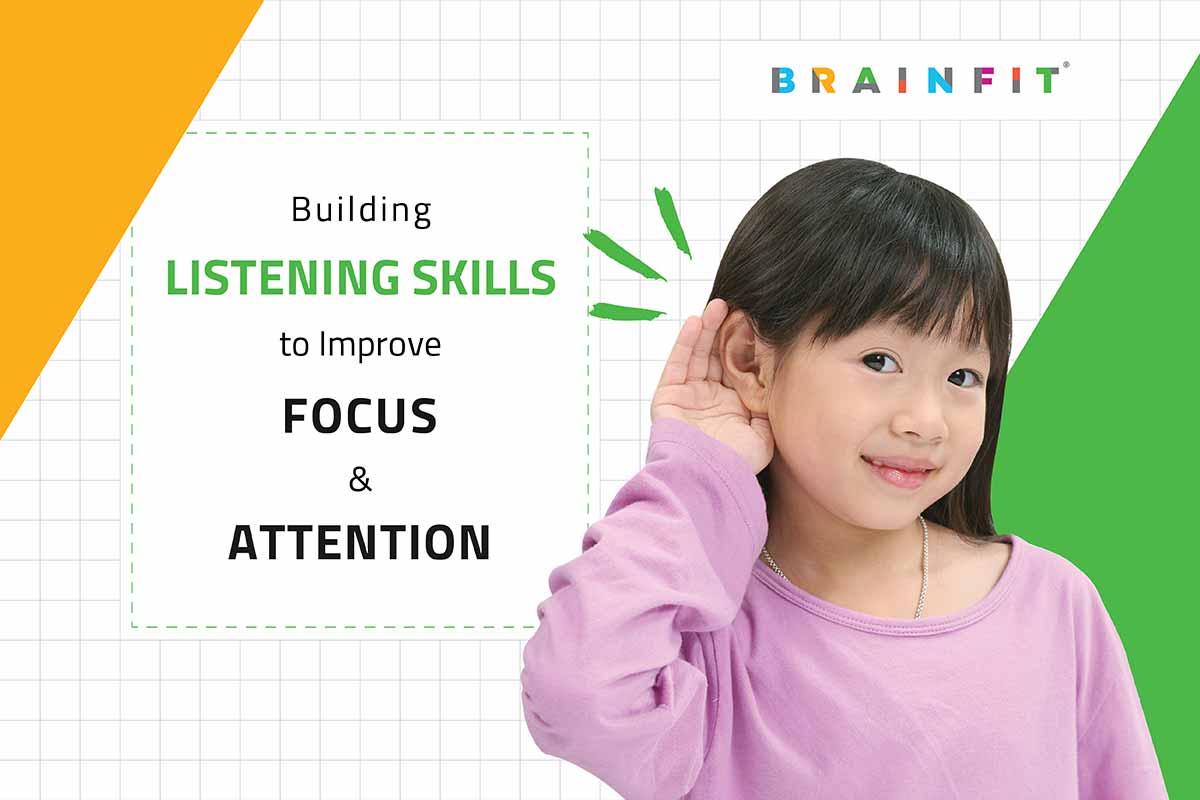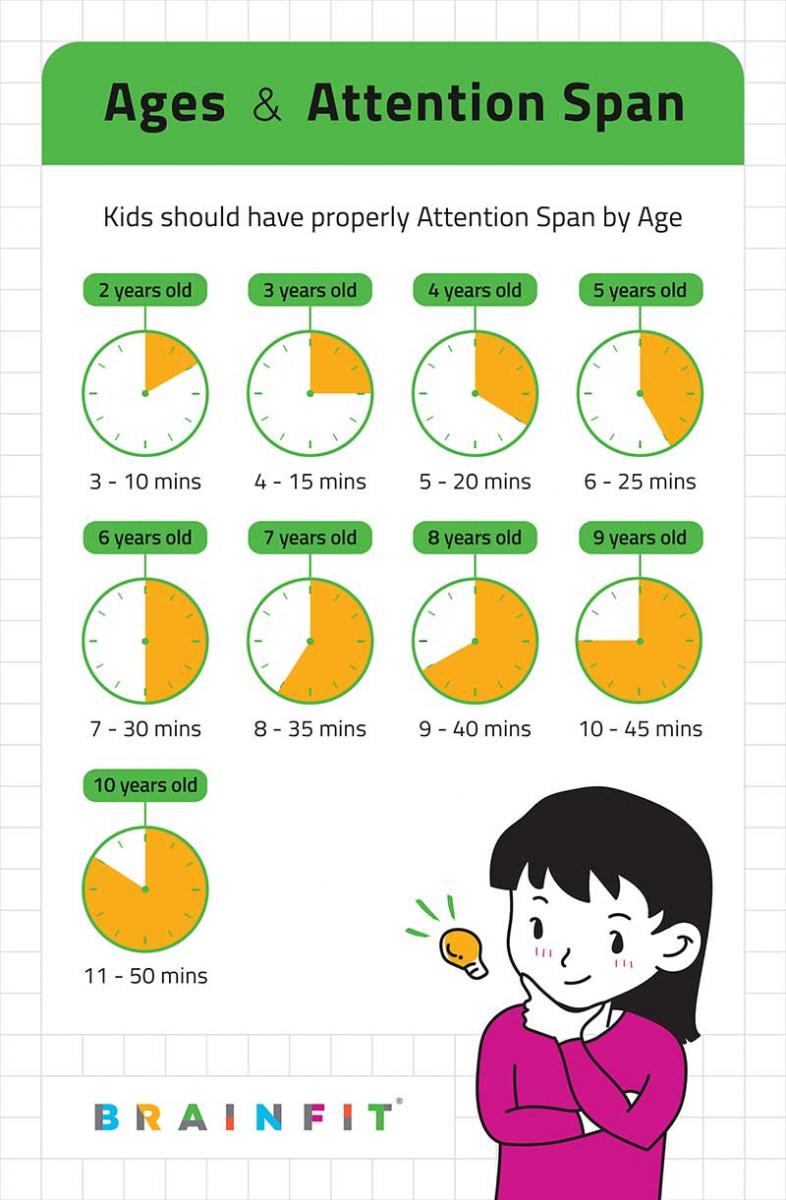Building Listening Skills to Improve Focus and Attention

Building Listening Skills to improve Focus and Attention
Have you ever gotten frustrated or impatient with a child who doesn’t appear to be paying attention? When a child is restless or inattentive at home or in the classroom, it can be hard to maintain your own focus on how best to help them.
Understanding Attention Spans
First things first: What is a normal attention span for kids? That depends what it is you’re expecting them to pay attention to. There are a number of tests and diagnostic tools to help us understand attention spans, but they measure different things. To help you understand the types of attention, we’ll break them down for you:
Focused/Sustained Attention: Your brain’s ability to concentrate on one specific task for a continuous amount of time without getting distracted. An example of focused attention would be reading a book or watching a movie.
Selective Attention: Your brain’s ability to choose only one subject to focus on when presented with many stimuli or choices. This comes into play when you’re concentrating on a conversation with a friend in the middle of a baseball game or at a party.
Alternating Attention: Your brain’s ability to move back and forth between tasks that may have different cognitive demands. Think about when you’re working on your computer and have to answer the phone, or you’re taking notes during a meeting while listening to someone else talk.
Attention Span by Age
The so-called attention span formulas range from their chronological age +1 to 2-5 minutes of attention per each year of their chronological age. While there isn’t a perfect science to these theories, here’s a useful attention span by age chart to help give you some basic guidelines.
Attention Span by Age

Again, all children are different and their attention spans will develop at different rates. If they are struggling with ADHD or any other conditions that impact their focus and attention, these guidelines may not pertain to your child.
If you’re concerned about your child’s attention span or lack of focus, it’s important you speak with a professional for diagnostic help and treatment recommendations. Only a trained specialist can help you understand your child’s attention span and any conditions that may be impacting it.
Building Listening Skills
Whether your child is currently following pace with our attention span by age chart, or you’re working with a specialist to understand why they aren’t, building your child’s listening skills is important work for families. At school, teachers and staff are working on your child’s active listening by doing things like pairing classmates up for partner conversations and daily skills practice. At home, there are a number of ways you can help your child develop better listening skills and attention.
- Talk about "whole body listening". For elementary school children, the concept of "whole body listening" is a valuable one. Teach your child to listen with their whole body. Use a Mr. Potato Head to demonstrate how to listen with every part of you. Eyes are looking at the speaker, both ears are ready to hear, mouth is closed and quiet, etc. The Biscotti Kid segment from Sesame Street is another great resource for younger kids.
- Be careful not to interrupt or rush your child when they are talking, or answer their sentences for them. Don’t assume you know where they are going with their thoughts. Let them process and communicate on their own.
- Make it a game! Play the Storytelling Game with kids, where everyone in the family takes turns adding one word or phrase to a story. Everyone has to be listening and paying attention so that when it’s their turn to add to the story, their contribution makes sense! This is a great game for the car, or when you’re waiting at a restaurant!
- Ask open-ended questions and demonstrate that you are listening to their answer. Ask questions about their responses and help them extend their thinking and improve their focus on a subject.
- Read, read, read. Read to your children when they are young and ask questions about the story as you go. Read or make up a short story, then read or tell it again making some changes to the plot. Have your child clap their hands each time they hear a difference!
- Make a meal together! Read your child a recipe and have them listen to and follow each step to make the dish correctly!
- Keep the conversation going. The back and forth of an engaged conversation is a great way to model active listening and polite conversation skills, while also gauging how your child’s focus and listening skills are shaping up. Ask your child about their day, what they are looking forward to, what activities they would like to put on the family calendar.
- As your child gets older, talk about listening skills and focus. Discuss the difference between hearing and listening, verbal and nonverbal communication, etc. Ask them what they are struggling with, and what comes easy to them. Really listen and engage in these conversations to help them grow their skills.
- Create an art project with your verbal instructions. Give short, simple directions and have your child draw what they are hearing!
- Play Follow the Leader or Simon Says to work on both focus and listening comprehension!
- Limit screen time. There are several studies and research on what screen time can really do to a child’s developing brain. While we believe in the power of technology to help children learn and overcome many language difficulties and learning disabilities, it’s more important than ever to monitor and moderate your child’s screen time. There’s a huge difference between reality television or video games and educational software or programming. Pay attention to the duration and quality of your child’s technology use.
- Get moving. Use movement, hand gestures, dances, exercises, etc. to help your child remember what to do and improve focus!
The Importance of Listening Skills, Attention Spans, and Focus
Your child’s listening skills play an important role in almost every aspect of their life. Not to mention yours. Helping them develop the ability to interact and communicate effectively is a lifelong gift. Their listening skills will play a role in their relationships, behavior, and education throughout their lifetime. Like any skill, your child’s listening skills can be improved over time – and you can help!
For more information on how the Fast ForWord program can help your child develop better attention, memory, sequencing and literacy skills, contact BrainFit Thailand today!
BrainFit Thailand
Call us now: 02-656-9938 / 02-656-9939 / 02-656-9915 / 091-774-3769
LINE: @brainfit_th






 BTS Ploenchit Station Exit 4
BTS Ploenchit Station Exit 4